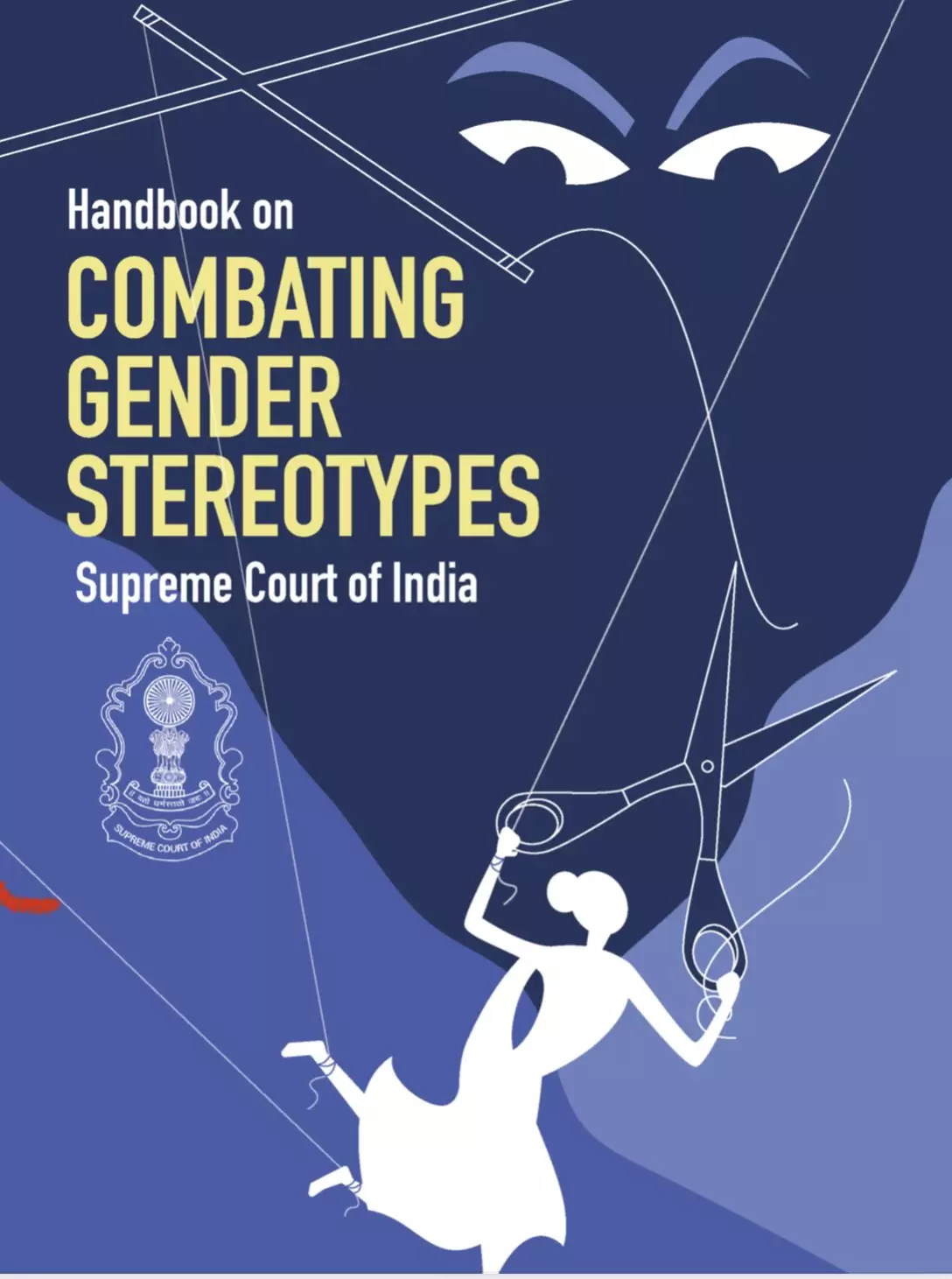
‘No woman of easy virtue’: SC unveils handbook to combat gender stereotypes
The Supreme Court has provided a glossary of words that need to be changed in legal discourse because of its derogatory meaning towards women in its 'Handbook on Combating Gender Stereotypes'

In a progressive measure to make legal language and courtroom parlance more gender sensitive, the Supreme Court of India on Wednesday (August 16) unveiled a handbook of words which replace words that promote stereotypes and reflect biases against women.
Chief Justice of India DY Chandrachud released The Handbook on Combating Gender Stereotypes to promote 'gender-just words' in legal discourse, in courtrooms, while drafting pleadings as well as orders and judgements. The handbook provides a list of inappropriate words and phrases which perpetuate gender stereotypes and suggests alternatives to replace them with.
While releasing the handbook, CJI Chandrachud said that the handbook “aims to assist judges and the legal community in identifying, understanding and combating stereotypes about women. It contains a glossary of gender-unjust terms and suggests alternative words or phrases which may be used while drafting pleadings as well as orders and judgments”.
Also read: Tamil Nadu: Dalit women panchayat presidents break glass ceiling, but the war still rages on
What the handbook says?
A host of words or phrases like adulteress, affair, bastard, child prostitute, chaste woman, concubine/keep, woman of easy virtue, effeminate, eve teasing, harlot, hooker, mistress, prostitute, and provider/breadwinner, among many others, have been considered incorrect and stereotyping promoting language. So, gender-just alternatives have been suggested in the handbook.
For example, instead of 'adulteress', the handbook suggests the use of 'woman who has engaged in sexual relations outside her marriage'; carnal intercourse to be referred to as 'sexual intercourse'; child prostitute as 'child who has been trafficked'; not to use 'woman of easy virtue' or 'fallen women' or 'harlot' or slut but to just call them women. Also, hooker and prostitute should be replaced with sex worker and not to use archaic terms like ravished and instead use sexually harassed/assaulted or raped.
Sex change should be referred to as sex reassignment or gender transition; cross-dresser instead of transvestite. And not to call an unmarried woman a spinster.
Demolishing stereotypes
The handbook is to drive home that stereotyping can unconsciously impact the decision of the judge. Hence, the handbook discusses how stereotyping functions, how to understand and overcome it.
It also lists the different types of gender stereotypes like ones based on the inherent characteristics of women like they are 'illogical, overly emotional'and assumptions are made about a woman's character based on her clothing or the way she lives and her sexual history. A quote from the Supreme Court judgement's ruling on the so-called 'loose character' of a woman is also provided in the book. In which the SC observed that even if the victim was habituated to sexual intercourse, and is a so-called "woman of loose moral character", she still has a right to refuse to submit herself to sexual intercourse to anyone and everyone..." The handbook too corrects the misconception that a woman who smokes and drinks can be touched by a man without her consent.
The cover of the handbook, showing a woman holding a pair of scissors cutting strings of bandage attached to her hands and feet, seems illustrative of the purpose behind the exercise, to make courtrooms and legal practice more gender sensitive.
No, means no and clothing does not indicate invitation, the handbook says, which attempts to dispel rape stereotypes as well. A rape is a rape and there is no woman of easy virtue, according to the glossary, and a victim is also referred to as a survivor.
The Indian judiciary must recognise the deep-rooted impact of gender stereotypes and actively work to dismantle them from its thinking,decision-making and writing, concludes the handbook.
Netizens love the handbook
It seems netizens have lapped up the 31-page handbook.
“#SupremeCourt's handbook on combating gender stereotypes is a guide for judges to avoid using inappropriate terminology in court orders & legal documents. For eg. "Career"/"Fallen"/"easy" woman or "harlot" could be avoided & one can simply say woman!” says Ritika Jain @riotsjain in her tweet on X, formerly Twitter.
Shubh Sharma, a law student, termed it a step in women empowerment, saying, “I personally think #SupremeCourt 's 'Handbook on Combating Gender Stereotypes' is a powerful step. #CJI Chandrachud emphasizes the importance of language in upholding #constitutionalvalues. Let's dismantle #stereotype for a more just society. #Law #WomenEmpowerment.”

